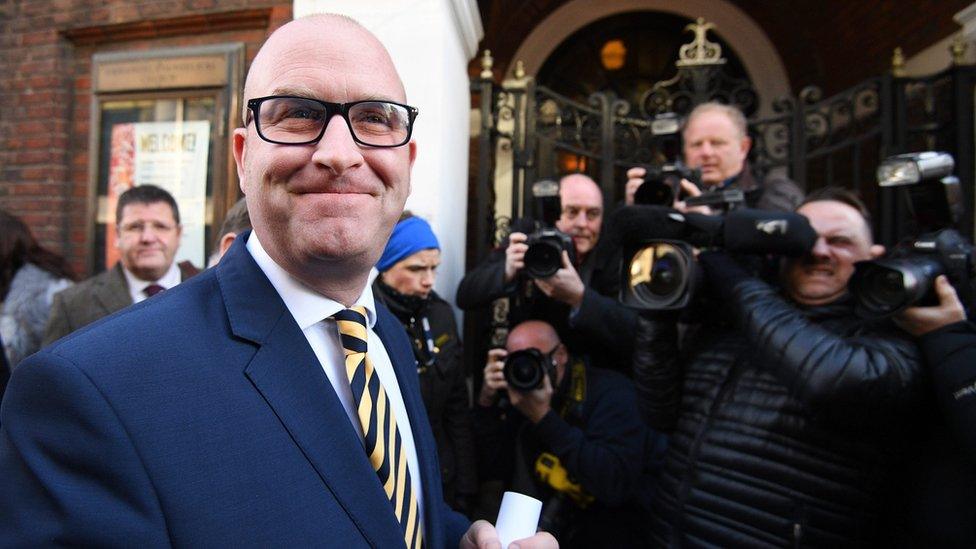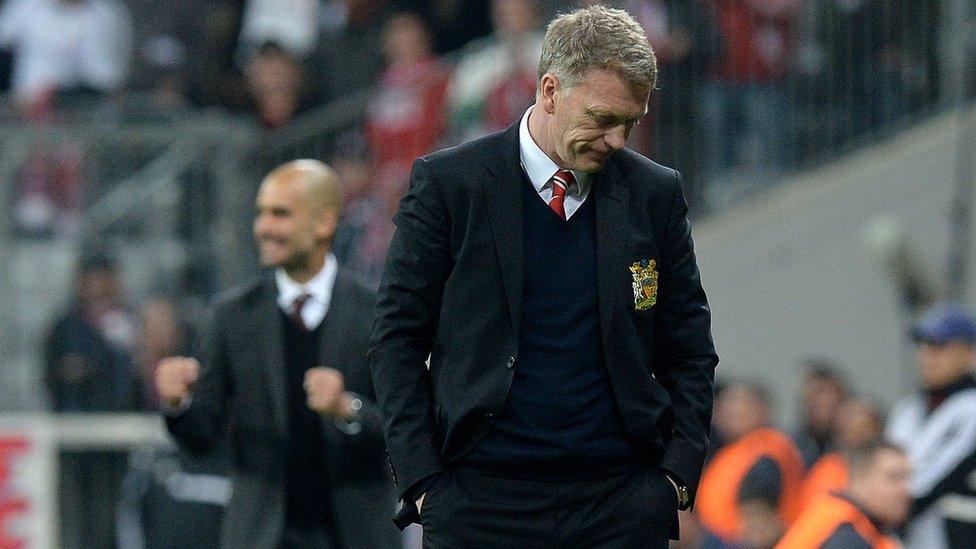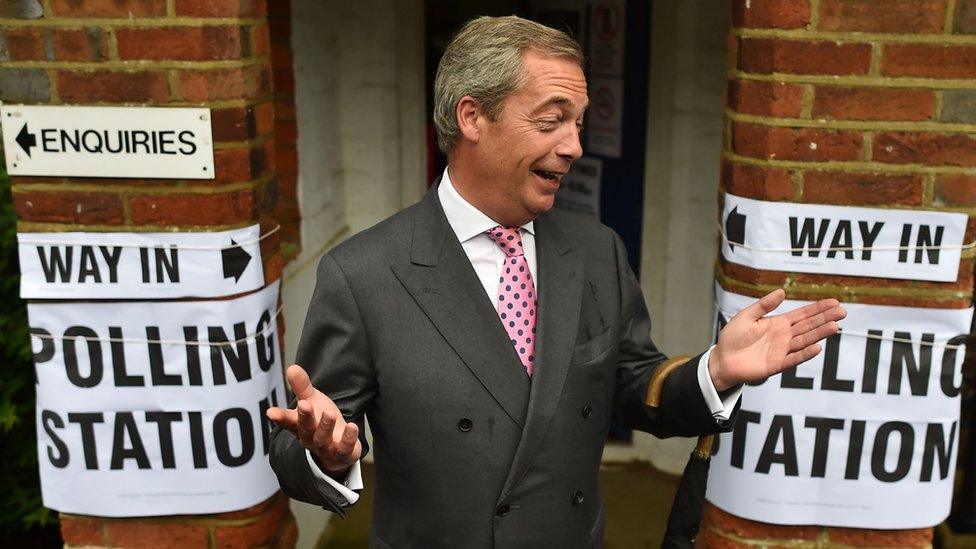Can Nuttall avoid the fate of Moyes?
- Published

It is a bit like having to replace Sir Alex Ferguson or Sir Terry Wogan.
Titans of their trade as big as the brand they represented.
For those two knights of Manchester United and Radio 2, read Nigel Farage and UKIP.
Enter the working class boy from Bootle, Paul Nuttall.
Will he be the David Moyes of politics, the former Manchester United manager who also made his name on Merseyside but turned out to be a crushing disappointment soon to be shuffled off the stage?
Or will he be the Chris Evans instead, accepting the apparently impossible inheritance, replacing the mega star, but matching, even eclipsing his popularity?
On the face of it, the challenge for Paul Nuttall is colossal.
Finding a purpose for a party that has achieved the very thing it was set up to achieve, getting the UK out of the European Union.
Do so via an electoral system for council and Westminster seats, first past the post, which makes it mighty hard for small parties to breakthrough.

David Moyes struggled to fill the shoes of another big-name boss
Oh, and leading a party with a penchant for volcanic eruptions of internal argument, with the odd dust up occasionally thrown in for good measure.
His pitch for the future goes like this: the electoral honeypot is to be found in the urban north of England, the geographical epicentre of Labour's heartlands.
Labour there is a political mega brand. But, then again, the argument goes, so was Woolworths once.
After all, the Labour Party in Scotland was once an impregnable electoral colossus.
Smashed, crushed and shrivelled, it isn't any more.
"This is UKIP's time," Paul Nuttall said in his victory speech.
Labour, he claimed, had "ceased to speak the language of working people."

Nigel Farage has promised not to be a "backseat driver"
Cue a flurry of tweets from jittery Labour MPs pointing out Mr Nuttall had once advocated privatising the NHS.
UKIP's only MP, Douglas Carswell, buys into the Nuttall plan.
The former Conservative said "we have maxed out the market for Thatcherite ultras," a reference to UKIP's original tilt towards disaffected Tories.
Matthew Goodwin, Professor of Politics at the University of Kent and the party's chief academic watcher, told the BBC there was "potential for UKIP, if they can hang together".
That could be a big if.
But there were, he said, "lots of radical right parties like UKIP" in Europe who were able to command 15-25% of the national vote even without an EU referendum.
In those Labour areas UKIP is targeting, Prof Goodwin said, "lots of voters are economically left wing, they want more redistribution, but culturally they are actually quite conservative. They like the things UKIP has been saying on immigration and on anti EU and anti Westminster platforms."
So, game on?
Nigel Farage has promised he won't be a "back seat driver". But history would hint he may just rattle around rather noisily in the boot.
Paul Nuttall has promised his only theme will be unity. But history would hint political volcanoes that have erupted before have the capacity to do so again.
UKIP has pledged to "replace the Labour Party." But history would hint that won't be easy.
Then again, 2016 has taught me it's not wise for political correspondents to be in the wild prediction business.
And a party that started life in a dusty office in the London School of Economics just 25 years ago has already proved its ability to change the political weather.
Now they are going to try to do it again.